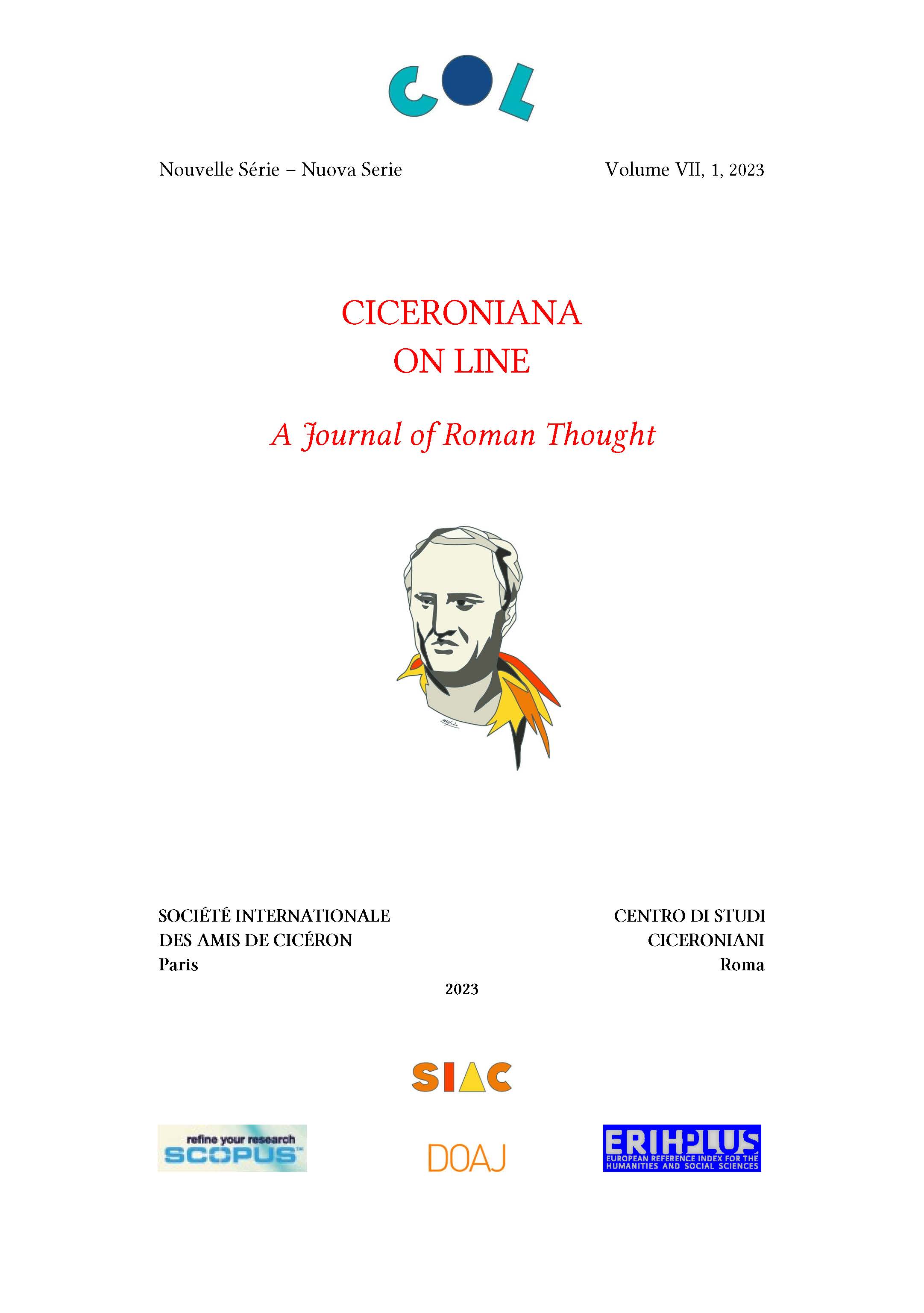Indifference and virtue: Pyrrhon according to Cicero
DOI:
https://doi.org/10.13135/2532-5353/7740Abstract
Cicero’s mentions of Pyrrho insist on two supposed dimensions of his philosophical teaching: indifference and virtue. By mentioning this forgotten philosopher, Cicero still intends to make him the most vivid manifestation of a philosophical position consisting in denying any difference among the intermediate things between virtue and vice. Almost always associated with the other philosopher of indifference (Ariston and Erillus), Pyrrho embodies an excessive and apathetic indifference, incompatible with practical life and untenable. However, this description has a notable originality: the idea that Pyrrhon defended honestas (to the point of excess) can be found in none of the testimonia, but Cicero’s ones. The aim of this study is to analyse the Ciceronian mentions of Pyrrho and the doxographies that Cicero inherits by analysing the modifications he makes: this will highlight the fact that Pyrrho is a scarecrow that Cicero has both inherited and transformed and that assumes a major strategic role in his critique of indifferentism and of the stoics’ atrocitas.
Downloads
Downloads
Published
How to Cite
Issue
Section
License
Authors who publish with this journal agree to the following terms:
- Authors retain copyright and grant the journal right of first publication with the work simultaneously licensed under a Creative Commons Attribution License that allows others to share the work with an acknowledgement of the work's authorship and initial publication in this journal.
- Authors are able to enter into separate, additional contractual arrangements for the non-exclusive distribution of the journal's published version of the work (e.g., post it to an institutional repository or publish it in a book), with an acknowledgement of its initial publication in this journal.


 Ciceroniana On Line is recognised by ANVUR (the National Agency for the Evaluation of the University System and Research) as a CLASS A journal for the Sciences of Antiquity, Philology, Literature and History of Art (
Ciceroniana On Line is recognised by ANVUR (the National Agency for the Evaluation of the University System and Research) as a CLASS A journal for the Sciences of Antiquity, Philology, Literature and History of Art ( The journal is included in DOAJ. The DOAJ listing of the journals is available at
The journal is included in DOAJ. The DOAJ listing of the journals is available at  The journal is indexed in
The journal is indexed in  The journal has been included in ERIH PLUS. The ERIH PLUS listing of the journals is available at
The journal has been included in ERIH PLUS. The ERIH PLUS listing of the journals is available at 

